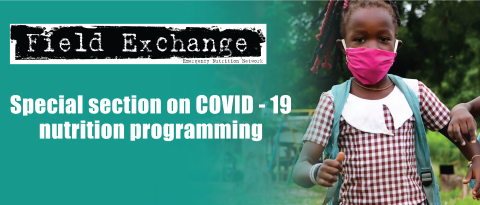Asia and the Pacific Regional Overview of Food Security and Nutrition
Report Summary 1
The third annual Food Security and Nutrition report, jointly written by the Food and Agriculture Organization, the World Health Organization, UNICEF and the World Food Programme explores the progress of countries in the Asia and Pacific region towards the Sustainable Development Goals (SDG) and World Health Assembly (WHA) targets on nutrition. Split into two parts, the report firstly tracks progress on key SDG targets up to 2019 and explores some scenarios which highlight the potential impact of the COVID-19 pandemic. The second part of the report focuses on potential solutions to improve the diets of mothers and children in the Asia and Pacific Region as well as noting some of the challenges. The report aims to raise awareness of the importance of maternal and child diets as well as to support conversations around shaping policies and practices across the region in order to achieve food security and nutrition for all.
Five years on from the launch of the SDGs, the report reveals that, overall, the region is not on track to achieve the 2030 targets. In 2019, 350.6 million people in the region were estimated to be undernourished, more than half of the global total. An estimated 74.5 million children under five years of age were estimated to be stunted and a total of 31.5 million children under five years of age in the region were classified as wasted. The prevalence of overweight and obesity is also growing.
While the true impact of COVID-19 on food security and nutrition is yet to be established, it is projected that these 2019 estimates will be driven even higher as a result of the pandemic. There is thus a clear need for governments and partners to intensify commitments to implement evidence-based policy and programmes to accelerate progress towards the SDGs as well as building resilience against future disasters and epidemics.
Since the causes of undernutrition are multifaceted and broad-ranging, the cost of a healthy diet is a critical factor to ensure food security and nutrition for all. In the region, 1.9 billion people are unable to afford a healthy diet; therefore, integrated policies and approaches to address food affordability, availability and accessibility are needed.
Globally, there is consensus that to address these issues, an integrated and coordinated systems approach is needed, involving institutions and actors across the water and sanitation, health, social protection and education systems. Social behaviour change communication needs to be mainstreamed throughout these systems for greater uptake and sustainability of healthy behaviours and diets. Strong political will, commitment and leadership are needed to mobilise stakeholders in a multi-sector approach. To make the most efficient use of scarce resources, it is important to invest in the most cost-effective and impactful interventions to improve maternal and child diets. With only 10 years left to achieve the 2030 agenda, a combination of these efforts is needed to support the active promotion of maternal and child diets.


